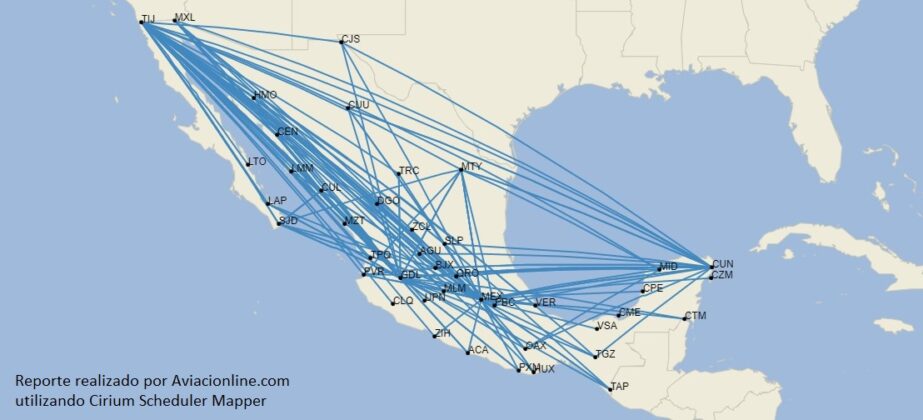This Thursday 6, Volaris released its preliminary traffic data report for December 2021, which shows the consolidation of the recovery and growth after the collapse of the pandemic, having closed the last month with an increase of 27.2% in demand (in RPM) compared to December 2019, and 40.3% compared to the same period in 2020.
Capacity (in ASM) grew by 30.7% compared to 2019, resulting in an occupancy factor of 85.9% (-2.3 percentage points versus pre-pandemic and +7.4 pp when compared to December 2020).
Thus, 2021 closed for the Mexican ultra-low-cost carrier with a growth in demand of 13.2% compared to 2019, while capacity grew by 14.7% (compared to 2020 the increase is 63.1% and 53.7% respectively), resulting in a load factor of 84.7% (-1.1 pp vs 2019 and +4.8 pp vs 2020).
«We closed the year with solid results as we continue to deploy appropriate levels of capacity that match the strong demand in our key tourism and VFR markets,» commented Enrique Beltranena, Volaris’ President and CEO.
For Q1 2022 the company has scheduled capacity (ASM) approximately 3% higher than Q4 2021, and about 53% higher than the same period last year, although they noted that they will continue to manage capacity and react appropriately if they see a deterioration in demand associated with the Omicron variant.
Volaris operates a network of more than 180 routes linking 43 destinations in Mexico and 26 abroad (22 in the United States as well as Bogotá, San José de Costa Rica, San Salvador, and Guatemala City in Latin America).
Its fleet consists of 3 Airbus A319s, 40 A320s, 37 A320neo, 10 A321s, and 6 A321neo. Of the total 96 aircraft, 91 operate for the Mexican parent company, 5 for the subsidiary in Costa Rica and one for the Salvadoran subsidiary, established in 2021.






